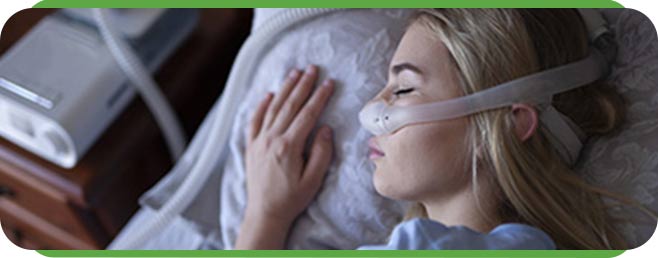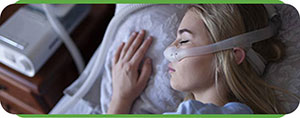What Can You Use Instead of a CPAP Machine?
If you are in search of CPAP alternatives near you, you don’t need to look anywhere else. Visit Koala® Center For Sleep & TMJ Disorders. For more information call us at one of our clinics today or request an appointment online. We serve patients from all over the USA. Locations in Bloomington IL, Peoria – Dunlap IL, El Paso TX, and Wausau WI.




Table of Contents:
What exactly does a CPAP machine do?
How do you sleep with a CPAP machine?
What treatments are there for sleep apnea that do not involve CPAP?
What happens if you don’t use CPAP to treat sleep apnea?
Sleep apnea is a common sleep disorder that occurs when the airways restrict or become obstructed due to the muscles in the throat and mouth relaxing during sleep. It is characterized by pauses in breathing during sleep, which can occur dozens of times a night, sometimes lasting up to 30 seconds. Continuous positive airway pressure (CPAP) machines can prevent these breathing pauses by keeping the airways open, however, they are not ideal for everyone living with sleep apnea.
Sleep apnea occurs because the muscles in the throat, mouth, and nose relax during sleep. This lack of muscle tension can cause the airways to become obstructed, which often leads to pauses in breathing mid-sleep. CPAP machines prevent this from occurring by applying a continuous positive pressure in the airways, allowing breathing to continue uninterrupted.
Sleeping with a CPAP machine is not always an ideal situation and often involves a big adjustment period for both the person using the machine and their partner. To sleep with a CPAP machine, first the mask is fitted over the nose and mouth; this is repeated each night before bed. The CPAP machine blows air through the mask to keep the airways open and is designed to make it easier to breathe during sleep. While CPAP machines are an effective treatment for sleep apnea, they are not the best choice in every situation. Common issues people encounter when using a CPAP machine include:
– They are uncomfortable to wear, especially if people are used to sleeping with their mouths open
– They require a fixed sleeping position
– They prevent people from rolling over or changing positions in the middle of the night
– They can cause sleep disruptions for others due to the size and/or placement of the mask and hose, the sound the machine produces when pumping air, or the light coming from the device
– Although CPAP machines can be an inconvenience, sleep apnea can be a health hazard. There are several complications associated with sleep apnea, including lack of sleep, waking up feeling tired, daytime fatigue, and even brain damage. So while a CPAP machine may be a big adjustment, the benefits they provide in the treatment of sleep apnea greatly outweigh the challenges they present and the potential health complications associated with untreated sleep apnea.
To sleep with a CPAP machine, it can help to follow these guidelines:
– Wear it to bed every night
– Make sure the mask fits properly
– Adjust the CPAP mask nightly
– Use a CPAP humidifier to prevent a dry throat or nose
– Optimize lifestyle for sleep
– Prepare bedroom for comfort
– And remember: practice makes perfect
CPAP machines are only one treatment of many for sleep apnea. Others include:
– Oral Appliances
– Mandibular Advancement Device (MAD)
– Tongue Retaining Devices (TRD)
– Positional Sleep Apnea Treatment
– Weight Loss
– Transcutaneous Electrical Nerve Stimulation (TENS)
– Jaw Surgery, such as Maxillomandibular Advancement
If you have been diagnosed with sleep apnea, and cannot use CPAP, the dangers of untreated sleep apnea continue to increase. There are several treatment options for sleep apnea other than CPAP, some of which are more effective in certain situations. However, if sleep apnea is not appropriately addressed, it can cause the following problems:
– Constantly feeling fatigued
– Difficulties waking up
– Falling asleep while driving
– Lack of motivation
– Problems with concentration and focus
– Increased susceptibility to agitation and irritation
– The strain on personal relationships
– Simple tasks become burdensome and challenging
– Higher risk of depression and anxiety
– Complications with comorbid conditions, including diabetes, high blood pressure, and cardiovascular disease
– Increased risk for stroke and heart attack
If you are looking for alternative ways to treat your sleep apnea, come to Koala® Center For Sleep & TMJ Disorders. Our sleep specialists can help you find the best treatment for your unique situation.

Additional Services You May Need
▸ KoalaKIDZzz®
▸ Sleep Apnea
▸ Snoring
▸ TMJ Disorder
▸ Fatigue
▸ Sleep Disorders
▸ Weight Loss
▸ CPAP Alternative
▸ Oral Appliances




